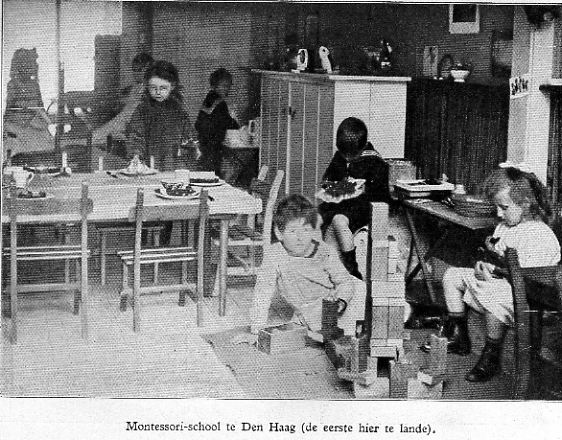such discipline could never be obtained by commands, by sermonizings... Discipline is reached always by indirect means.
I am trying to remember some Montessori principles: to model the behavior I would like to see our children using, to notice and comment on good behavior, and to correct not by focusing on the bad behavior but by reminding children what I do expect. I have a long way to go!
I often forget and say, Don't run! rather than Remember - in this classroom we walk more slowly than usual. I frequently stand up from a sitting position while holding the basket of materials in one hand. I am still struggling very much with the goal of noticing rather than praising (aka: descriptive praise).
 |
| (public domain image) |
I have for two weeks now carefully (slightly exaggeratedly, but without many words) used the Faces of Easter control card when putting away the materials after the lesson. I've noticed that the children do really watch when I do this. Last Sunday one child said aloud, as I stacked the next-to-last plaque, That last one goes on the top.
Where I and the children are both falling down a bit is at the end of class, when we're all a bit tired, and we should be waiting respectfully to receive communion or blessings. The young children tend to get silly, and I let myself get irritated. But last week Vandriver came to our class. (Our pastor was ill, and so Vandriver led Anglican Evensong instead of the adult's usual Communion service. He then came to our class to say the blessing, just as normally the pastor comes with communion.) Afterwards, when I fretted privately about the silliness, he reminded me that this was not really bad behavior. They stayed in their places, they weren't loud, etc. So it's good to be reminded to keep things in proportion. And to focus on the progress that I'm making, which I think has led to good progress for the children.
| Lumijoki chalice photographed by Estormiz (public domain image) |
good to remind yourself that they are small kids and they've been under the discipline of the class for a long time (more than twice as long as what a normal lesson time for 7 year olds is here in Finland)
ReplyDeleteThey do behave sillily sometimes - but - it's always very joyous and not mean-spirited or nasty and I think that's another positive spin to the whole thing. And for what it's worth you model a lot of patience ... which is great too. I learn a lot from watching you.
You are right that they are not mean-spirited. Thanks for that reminder.
ReplyDeleteAnd I think you, too, are a good model for them, especially in your work with story materials during Response Time.
Hey, I do that because I want to respond for myself. I never consciously think "oh it would be good to work with this so that THEY would get the idea" ... and I do wonder how miffed I'd get if someone else chose what I wanted to do and then wouldn't let me join in (grin) ... maybe we'd need the peace flower!
ReplyDeleteThanks for all you do :)
Well, I do think the best way to model behavior is to have the same expectations for the children as you have for yourself! I know you're not doing it for them, but I do think your full engagement with our program is part of what makes your presence so special.
ReplyDelete